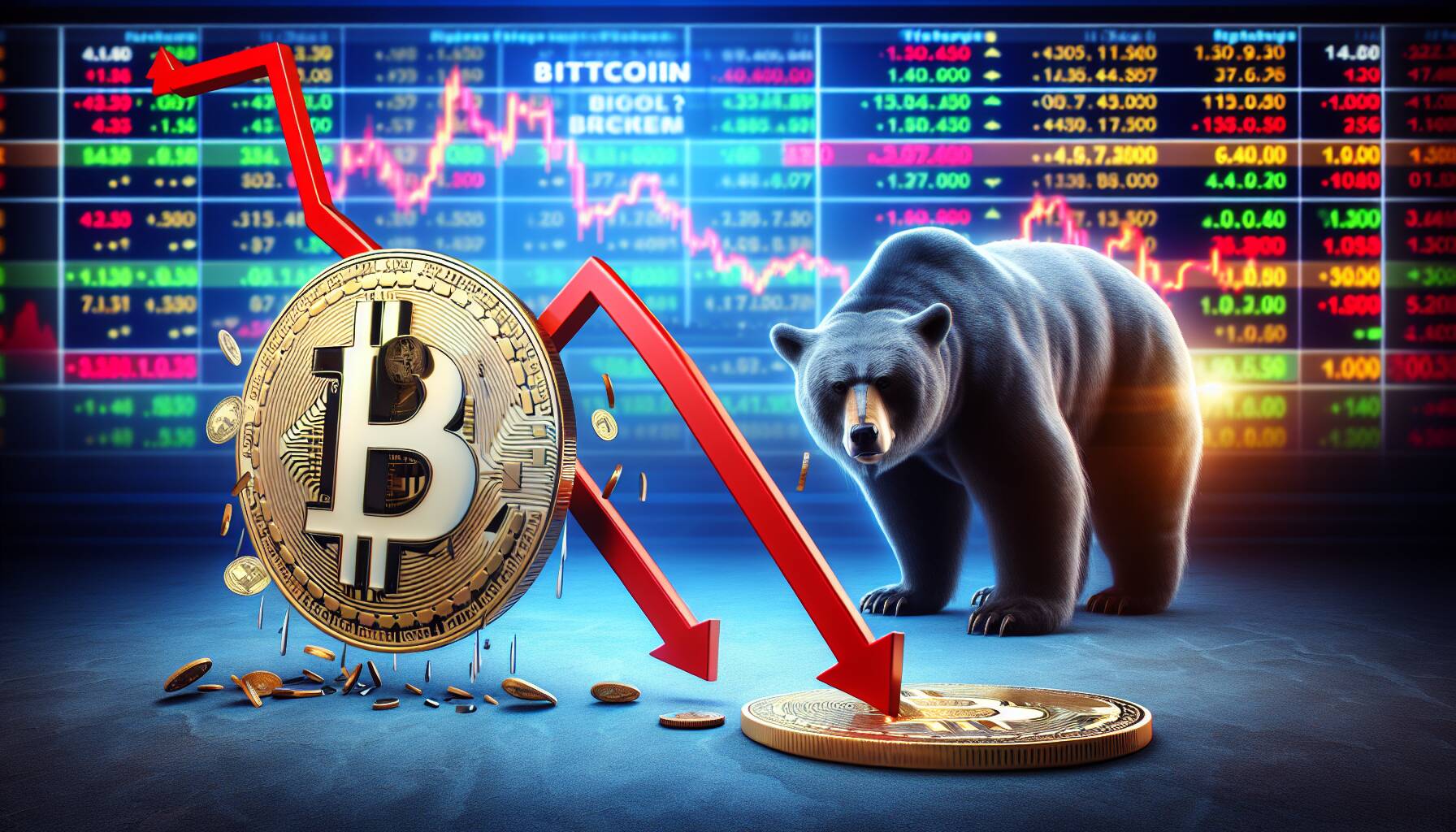In a recent wave of discussions surrounding cryptocurrency, notable financial commentator Peter Schiff has stirred the pot with a bold prediction regarding Bitcoin. Schiff posits that if the Nasdaq stock market enters a bear market, the price of Bitcoin could potentially plummet to ,000—a significant drop from its current levels. This speculation comes in the midst of a tumultuous period for tech stocks, which often correlate with the performance of cryptocurrencies.
Schiff, a well-known advocate for gold and a critic of Bitcoin, expresses particular concern over the current economic climate. As market conditions fluctuate, Schiff’s comments reflect a broader anxiety among investors about the stability of assets that have historically been perceived as volatile. Amidst this backdrop, gold has seen a notable increase in value, further emphasizing the contrasting paths of traditional and digital currencies.
“As the Nasdaq faces declining trends, it’s vital to consider how this impacts the crypto landscape,” Schiff remarked, shedding light on the interconnectedness of different investment avenues.
With discussions heating up about the future of Bitcoin and its position in the financial ecosystem, many are left wondering: Will Bitcoin withstand external market pressures or face the kind of crash Schiff predicts? As the cryptocurrency market continues to evolve, it remains essential for investors and enthusiasts alike to stay informed about ongoing developments and expert opinions in this dynamic arena.

Will Bitcoin Price Crash to ,000? Key Insights
In light of recent market trends and expert predictions, here are the most critical aspects regarding Bitcoin’s potential price movements:
- Peter Schiff’s Prediction:
- Peter Schiff foresees that Bitcoin could drop below ,000 if the Nasdaq enters a bear market.
- Schiff’s views are influential, especially among investors considering the implications for Bitcoin and other cryptocurrencies.
- Market Correlation:
- The performance of the Nasdaq is closely linked to the cryptocurrency market, suggesting that downturns could lead to significant declines in Bitcoin price.
- If an investor’s portfolio includes both stocks and cryptocurrencies, a bear market in traditional equities may prompt them to sell digital assets to mitigate losses.
- Gold vs. Bitcoin:
- Peter Schiff, known for his advocacy of gold, suggests that a gold surge could occur in concert with Bitcoin’s decline.
- This duality means that traditional asset classes may react inversely to cryptocurrencies, affecting investment diversification strategies.
- Strategic Movements:
- Schiff has initiated a Bitcoin reserve strategy, highlighting a shift in his perspective toward Bitcoin as a viable investment despite negative predictions.
- This initiative may attract investors who are looking for alternative ways to hedge against market downturns.
“The relationship between traditional stocks and Bitcoin is becoming increasingly complex, affecting how investors navigate their portfolios.”
Peter Schiff’s Bitcoin Predictions: Insights and Impacts on the Crypto Landscape
Renowned financial analyst and gold advocate Peter Schiff has stirred the crypto community with his prediction that Bitcoin’s valuation could plummet below ,000 if the Nasdaq enters a bearish phase. This statement comes amid turbulent market conditions, where traditional stocks are faltering and precious metals like gold are gaining prominence.
Comparative Advantages: Schiff’s bearish outlook on Bitcoin, particularly in relation to potential Nasdaq woes, aligns with the sentiments of other traditional investors who view cryptocurrency as a volatile instrument. His reputation as a gold standard advocate lends significant weight to his predictions, suggesting he might be providing a cautious perspective that resonates especially well with risk-averse investors. Furthermore, Schiff’s active engagement in promoting a strategic Bitcoin reserve initiative indicates an understanding of the market that transcends simple alarmism; he appears to be preparing for an educated investment strategy, which might attract other cautious investors looking to hedge against stock market declines.
Disadvantages and Challenges: While Schiff’s insights could serve as a warning beacon, they might also inadvertently scare off new entrants to the cryptocurrency market. His assertions could amplify existing fears and lead to panic selling, which could further depress Bitcoin’s price. Moreover, Schiff’s strong anti-Bitcoin stance places him at odds with a community that increasingly views digital assets as a legitimate alternative investment, potentially making him a polarizing figure.
The target audience that may benefit from Schiff’s predictions includes seasoned investors and institutional players looking to adjust their portfolios for economic downturns. On the other hand, retail investors, particularly those new to the crypto space, might find his comments daunting, increasing their hesitance to engage with Bitcoin during what they perceive to be uncertain times. This division could create challenges for the broader adoption of cryptocurrencies as a mainstream financial asset, especially among those influenced by media narratives.

















